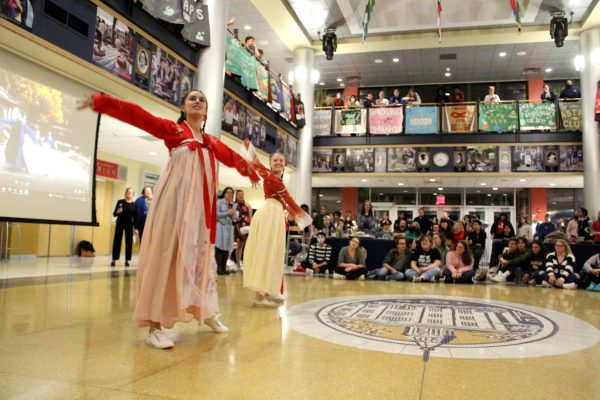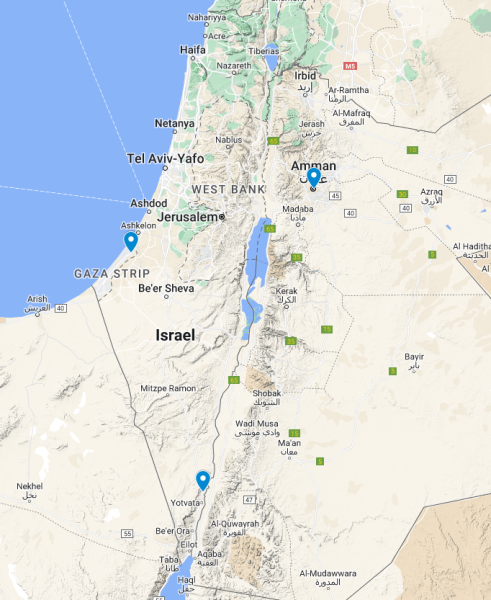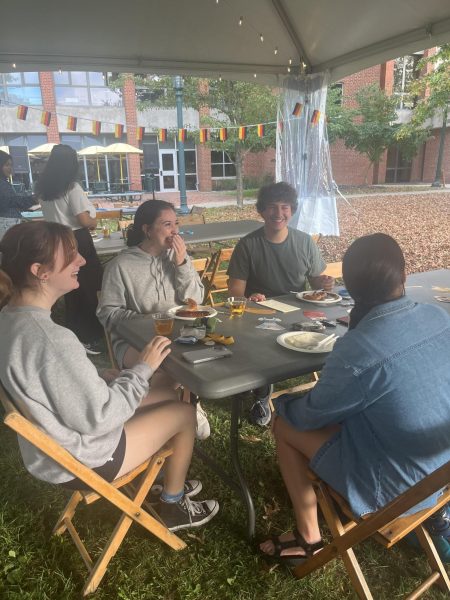Ukrainian students commemorate one year anniversary
On this day a year ago, Russia launched a full-scale invasion of Ukraine. Russia attacked the entire territory of the country with missile strikes in the early morning of Feb. 24. This is a new stage of the Russian-Ukrainian war, which has been going on since 2014, when Russia annexed the Crimea peninsula and Sevastopol, and occupied certain areas of Donetsk and Luhansk regions, the eastern territories of Ukraine.
Ukrainian students at Alleghenу have prepared an event dedicated to the anniversary of the war in Ukraine. They will share how they got to Allegheny and what they went through before coming to the U.S. in addition to sharing the stories of those who died in the war. The event will take place on Feb. 24 at the Henderson Campus Center from 6 to 8 p.m.
Daria Kutova, ’25, a student from Ukraine, was at home, in a small town Vyshneve near Kyiv when the war started. She recalled every moment of that morning.
“The lives of all Ukrainians were divided into before and after,” Kutova said. “I still remember my mom’s words like ‘Dasha wake up, the war has started, pack your stuff.’”
There was not enough time to think things through. Kutova explained how, in the rush, many Ukrainians simply grabbed a bag and threw things into it.
“They should have packed their entire lives in one backpack,” Kutova said.
The war in Ukraine has had a devastating impact on the civilian population, with thousands of people losing their lives and millions more being displaced from their homes, according to an OCHA report. The war has also led to a humanitarian crisis, with many people lacking access to necessities such as food, water and healthcare.
Being far away from home Allegheny Ukrainians continue to lead their own “informational frontline” while the others protect Ukrainian territories.
“Every single day we can spread the information and talk about Ukraine and the war happening right now,” Kutova said. “It’s important to help people and to be aware of everything that’s going on in the world because you never know what will be to your country one day.”
Professor of History and Global Health Studies Kenneth Pinnow echoed this sentiment, as he outlined the cost of democracy for Ukraine.
“People are fighting to live as they want, to be respected as a people, as a culture, and to preserve those democratic gains that they have,” Pinnow said.
Kutova previewed the event’s program. Aside from the presentation about Ukrainian culture and history, she said there will be exhibitions about how Ukrainian students found their way onto Allegheny’s campus.
Another exhibition, which will be shown the same day in more than 45 universities throughout the world, is called “unissued diplomas.”
“We will uncover the story of 20 students who hold their education, but then just went to protect their country and died during the war,” Kutova said. “And they would never become graduates.”
Pinnow liked the idea of showing real students’ life stories and how they changed within the year of the war. Нe mentioned how the students who took part in the Experiential Learning seminar in Ukraine in 2018 built their connections within Ukraine and now they feel the war more personally.
“I think this event is important because it’s a way to move beyond the news and to move beyond the generalities to connect to specific stories and individuals, specific people,” Pinnow said.
The partnership between Allegheny and Ukraine has deep roots. Andriy Meleshevich, former president of the Ukrainian university Kyiv-Mohyla Academy, taught Political Science at Allegheny. Meleshevich was the one who started the EL trip to Ukraine. After Meleshevich left, Pinnow took over the programs.
“The connection between Allegheny and NaUKMA goes back over 20-plus years,” Pinnow said. “We owe a lot to Andriy, who I miss very much.”
These trips have been limited in the past decade due to the ongoing war in Ukraine. There was a trip in 2013 and 2018, but none have happened since.
“I feel like in some ways we’ve been robbed of the opportunity now to get to know Ukraine, its people and culture,” Pinnow said.
As a way of honoring his personal relations with Ukraine and Kyiv-Mohyla academy, Pinnow decided to raise funds for some of the Ukrainian students to support their studies at Allegheny.
On campus, several Ukrainian students created a similar fundraiser to help Ukrainian students who fight for Ukraine sacrificing their time and education to work for Ukraine’s freedom. This is a way for all students to take action and support Ukraine in its defense against Russia.
Professor Emerita of Psychology Juvia Heuchert explained that giving people a way to take action is important in situations like this, as it helps them feel as though they have contributed to the solution. Heuchert mentioned that a fundraiser at the event could help the community participate proactively in the war in Ukraine.
“I think a fundraiser can help people to become informed citizens to help them understand the complexities of war and understand the complexities of responses to that,” Heuchert said.
On a broader scale, Pinnow added that sometimes this war or other international conflicts can seem far away. It is important, he said, “to think about who we want to live as a world global community, but then also to keep in mind the real effects that are happening.”








